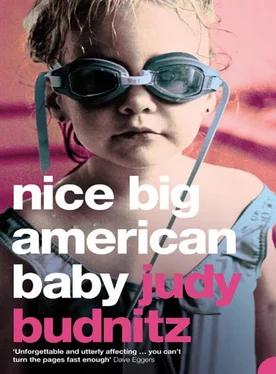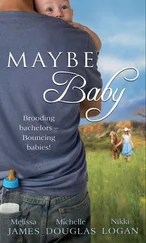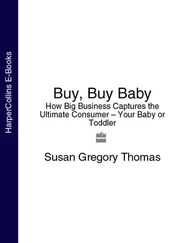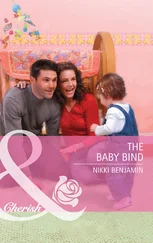But no, he said. He said it wasn’t like that at all. “She’s sad,” he said, “about something. She won’t tell me. It’s killing me to see her so miserable.”
We worried. Why shouldn’t we? He was our friend. We’d known him for a long time, long enough to see changes in him, long enough to still see the face of younger-Joel embedded in the flesh of older-Joel. We had known him when his pores were small, his hair thick, and his body an inverted triangle rather than a pear. Of course we worried. We had a right to.
Joel was lucky to have us. Men need female friends; they need our clear-sightedness, our intuition. And certainly women need male friends as well. The ideal male friend is one you’ve slept with at some point in the past—that way there’s no curiosity, no wondering to taint the friendship.
Joel would not do it, he was too kind to deal with her. We took it upon ourselves. On a day when we knew he was coaching “his kids” at a soccer match, we went to the house. Nadia let us in, offered to make tea. She seemed no more dejected than usual. She was wearing enormous furry slippers shaped like bunnies, her narrow ankles plunged deep in their bellies. Perhaps she was accustomed to wearing dead animals on her feet. She shuffled across the floor, raising a foot to show us. “Funny, no?” she said.
Funny. No.
We sat her down and gave her a talking-to. She kicked off the slippers and sat cross-legged on the sofa, and we gathered around her, holding her hands, knees, shoulders, and got right to it.
“Why are you making Joel unhappy?” we asked her.
“I don’t,” she said. “I make him tea, I make him dinner, I make his bed. I don’t make him unhappy.”
“What’s the trouble,” we asked her. “Are you homesick?”
The end of her nose was turning pink. It was easier than we’d expected.
“You can tell us,” we said. “Tell us anything. Need a shoulder to cry on? A hand to hold? Let it out. Have a good cry.” She kept her head still but her eyes darted back and forth.
“What about children?” we asked. “Don’t you want children?”
“We want children.”
“ Joel wants children.”
“Joel wants children.”
“But you don’t.”
“No.…”
“You can’t?”
“No!”
“Are you trying?”
“Yes.”
“But you don’t want to have a child?”
“I have child!” she said. She twisted away from us and went to take the teakettle off the stove. We wanted to press further, but we thought she’d said enough. By the time she returned with cups and spoons and the teapot on a tray, we were gathered at the door ready to leave. She carried the tray so easily, she must have had some waitressing experience in her past, we agreed, as we headed up the street. We must have imagined the shatter and skid of china somewhere in the dark house behind us.
Of course we told Joel, and he got it all out of her in his gentle, imploring way. Nadia had a twelve-year-old daughter back in … wherever it was. (I looked it up—one of those places with the devious names that sound nothing like they’re spelled.) Joel told her over and over, he told us over and over, that she shouldn’t have kept it from him, that of course he would welcome her daughter as his own.
Outside of Nadia’s hearing, he hissed that he was furious with us, with what he termed our interfering. Interfering! We’d done it for his own good. For the good of both of them. Frankness, we reminded him, was the basis of any good relationship.
We thought he would want to know what kind of woman his wife really was. How could she do such a thing? Leave her own daughter behind?
Joel didn’t mention—though we suspected he brooded over—the fact that a daughter meant there was a father. Dead? An ex-husband? A current husband? A boyfriend past or present? All men are jealous, even men like Joel. They don’t get jealous the same way women do, but they get jealous all the same.
“We’re going to bring her over,” he told us.
“Who, you?”
“Nadia can’t go; she won’t be able to get out again. I’m going.”
“By yourself?”
“Malcolm can help, maybe,” he said.
“What are you going to do, just go over there and snatch the kid?”
“There must be a legal way to do it,” he said. “And if not.…”
Joel had never been the type to make threats; we were almost inclined to laugh. But now look at him, pounding his fist into his hand, throwing back his shoulders, glaring as if looking for a fight. She had changed him, she had been riding him after all, but in a more insidious way than we’d suspected. She must have sulked and whined and prodded and provoked him into charging back to her backwoods hometown to rescue her brat. Her daughter, whom we imagined as a miniature, even more doll-like version of Nadia.
We still didn’t believe it. Out of those girls’-size-twelve hips? Such a tight squeeze. We pictured a blue and dented baby among gray hospital linen.
Her body—too ungenerous to nurture anything; husband, child. Not like ours. Me, I stand in front of the mirror sometimes, squeezing here and there hard enough to leave pink fingerprints. I imagine people taking bites, here and here and here. I could feed a family of five for a week.
Perhaps Joel’s resoluteness had something to do with the phantom father—perhaps out of jealousy, or out of chivalry, he wanted to track the man down, see him face-to-face. And then what? We liked the idea of it—Joel as hero avenger, toting the twelve-year-old under his arm and facing down a dark-faced stranger—but we couldn’t quite make it work. The picture in our heads looked like Joel manhandling one of his students, getting too rough on the kickball field, overstepping the bounds of discipline. Setting himself up for a lawsuit. The “he’s such a nice guy” refrain would be replaced with “but he seemed like such a nice guy.”
We thought Joel was all bluster, but he did it. He made plans; he bought tickets. Had to get special permission, made shady arrangements. Bought six pairs of Nikes, a dozen pairs of blue jeans. “Gifts.” How did he know what size to get? Sunglasses and a money pouch that strapped around his waist.
I went by the house when he was packing to lend him my kit of outlet adapters. So many different configurations of prong and hole. Neither of us knew which he would need.
“Take them all,” I said. My hands were overflowing. We were alone in the bedroom, suitcase splayed over the bed. I said, “It doesn’t bother you that she has a child? That she loved someone else? Maybe she still thinks about him.”
“She left, didn’t she?” he said. “Everyone deserves a second chance.” He was using the voice he used with his students, brightly chiding.
“Second chance?” I said. “Everyone?”
He walked to the other side of the bed and very studiously folded a T-shirt into a perfect square. “You know, what do I need all these plugs for, anyway? A hair dryer? An electric razor?” He tugged at his beard, just in case I didn’t get it. “Thanks, but no thanks.”
I passed Nadia in the hallway. “Tea?” she said.
“What?” I said. “What? Enunciate, please.”
He went. He left Nadia behind, in the drafty house, which seemed colder than ever in the spring chill. We visited her again; we kept her company in twos and threes; we watched television with her while she listened to her earphones. We noticed bruises on her arms—on her ribs once when she was taking off her sweater and her undershirt rode up. Splotches like handprints. We didn’t ask; we figured she was anemic. It would make sense; she must have grown up malnutritioned. I’ve heard about people like that, they bruise so easily that sitting in a chair leaves them black and blue. You can bruise them by breathing on them.
Читать дальше












